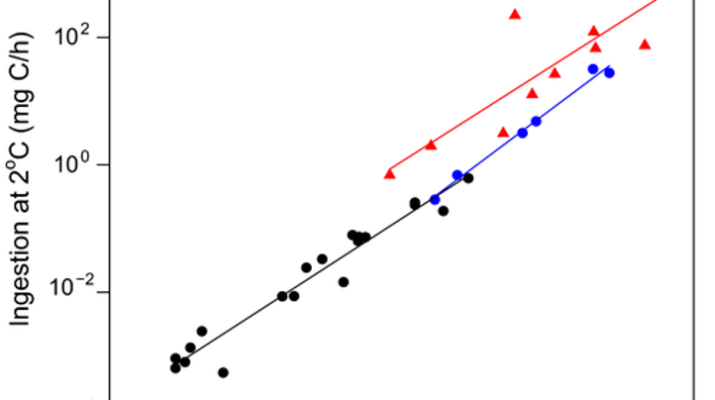Durden, J.M., Bett, B.J., Huffard, C.L., Ruhl, H.A., Smith, K.L. (2019)
Ecology, 100(1): e02564
The Metabolic Theory of Ecology (MTE) posits that metabolic rate controls ecological processes, such as the rate of resource uptake, from the individual- to the ecosystem- scale. Metabolic rate has been found empirically to be an exponential function of whole organism body mass. We test a fundamental assumption of MTE, whether resource uptake scales to metabolism, by examining detritivores accessing a single common resource pool, an ideal study case. We used an existing empirical model of ingestion for aquatic deposit feeders adjusted for temperature to test whether ingestion by abyssal deposit feeders conforms to MTE-predicted feeding rates. We estimated the sediment deposit-feeding rates of large invertebrates from two abyssal study sites using time-lapse photography, and related those rates to body mass, environmental temperature, and sediment organic matter content using this framework. Ingestion was significantly related to individual wet mass, with a mass-scaling coefficient of 0.81, with 95% confidence intervals that encompass the MTE-predicted value of 0.75, and the same pattern determined in other aquatic systems. Our results also provide insight into the potential mechanism through which this fundamental assumption operates. After temperature correction, both deep- and shallow-water taxa might be summarized into a single mass-scaled ingestion rate.

Link to article: https://doi.org/10.1002/ecy.2564

